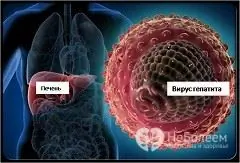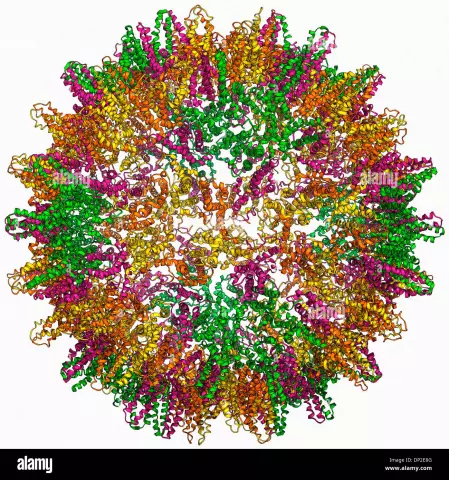- Author Rachel Wainwright wainwright@abchealthonline.com.
- Public 2023-12-15 07:39.
- Last modified 2025-11-02 20:14.
Consequences of infection with hepatitis B

Hepatitis is an inflammatory disease of the liver. With hepatitis B, the virus infects liver cells, hepatocytes, as a result of which they first become inflamed, and then are replaced by fibrous tissue, similarly, scars remain at the site of former wounds. The liver copes with its functions until a certain time, until most of the hepatocytes are replaced by fibrous tissue. This is how cirrhosis of the liver develops. Liver cirrhosis is a serious, fatal disease, since the liver loses its functions, and without it the body is not viable.
In addition, a long-term current inflammatory process can develop into a tumor, and then hepatocellular liver cancer can develop. Hepatitis B is badly reflected in pregnancy, it can cause miscarriage or premature birth. If a healthy baby is born from an infected mother, he is vaccinated against hepatitis B, fortunately, this virus does not harm the fetus. Such consequences of hepatitis are not indispensable, in many respects the prognosis depends on the course of the disease. But you need to know about them so as not to underestimate the disease and not take it too lightly.
Hepatitis B, like other infectious diseases, can take various forms. There are the following: carrier of viruses - when the virus in the body is in an inactive state, that is, there is a virus, but the disease is not yet present; latent, or anicteric form, when a person is sick, but the symptoms are so insignificant that they do not pay attention to themselves and are taken for ordinary malaise; acute hepatitis B, or icteric form, with pronounced signs of the disease, and chronic hepatitis B. Each of these forms can have different consequences.
When carrying a virus, the immune system is not strong enough to deal with the virus, but it is still strong enough to prevent the virus from multiplying in the body. In this case, the outcome may be as follows: either immunity will get stronger and cope with the virus, if not, then sooner or later it will weaken, and then the virus will take its toll - hepatitis B will develop. The latent form looks like a virus carrier, but differs in that while a person suspects nothing, the virus does its dirty deed to destroy the liver.

Acute hepatitis B, oddly enough, is the most favorable variant of the disease. It makes itself felt, which means that active therapeutic measures can be taken, at least the necessary rest is provided. In strong people with a strong immune system, the acute form of the disease can even go away on its own, the body is able to cope with the disease on its own. With an unfavorable combination of circumstances, the acute form becomes chronic. Chronic hepatitis B is difficult to cure, and of all forms, it is hepatitis B that most often turns into cirrhosis or cancer.
Found a mistake in the text? Select it and press Ctrl + Enter.






